Login
Registration enables users to use special features of this website, such as past
order histories, retained contact details for faster checkout, review submissions, and special promotions.
order histories, retained contact details for faster checkout, review submissions, and special promotions.
Forgot password?
Registration enables users to use special features of this website, such as past
order histories, retained contact details for faster checkout, review submissions, and special promotions.
order histories, retained contact details for faster checkout, review submissions, and special promotions.
Quick Order
Products
Antibodies
ELISA and Assay Kits
Research Areas
Infectious Disease
Resources
Purchasing
Reference Material
Contact Us
Location
Corporate Headquarters
Vector Laboratories, Inc.
6737 Mowry Ave
Newark, CA 94560
United States
Telephone Numbers
Customer Service: (800) 227-6666 / (650) 697-3600
Contact Us
Additional Contact Details
Login
Registration enables users to use special features of this website, such as past
order histories, retained contact details for faster checkout, review submissions, and special promotions.
order histories, retained contact details for faster checkout, review submissions, and special promotions.
Forgot password?
Registration enables users to use special features of this website, such as past
order histories, retained contact details for faster checkout, review submissions, and special promotions.
order histories, retained contact details for faster checkout, review submissions, and special promotions.
Quick Order
ATG16L1 / ATG16L
autophagy related 16-like 1 (S. cerevisiae)
Plays an essential role in autophagy: interacts with ATG12-ATG5 to mediate the conjugation of phosphatidylethanolamine (PE) to LC3 (MAP1LC3A, MAP1LC3B or MAP1LC3C), to produce a membrane-bound activated form of LC3 named LC3-II. Thereby, controls the elongation of the nascent autophagosomal membrane.
| Gene Name: | autophagy related 16-like 1 (S. cerevisiae) |
| Synonyms: | ATG16L1, APG16-like 1, APG16L, APG16L beta, ATG16L, Autophagy-related protein 16-1, IBD10, WD repeat domain 30, ATG16A, WDR30 |
| Target Sequences: | NM_017974 NP_060444.3 Q676U5 |
Publications (7)
1
Crohn's disease-associated ATG16L1 polymorphism modulates pro-inflammatory cytokine responses selectively upon activation of NOD2. Plantinga TS, Crisan TO, Oosting M, van de Veerdonk FL, de Jong DJ, Philpott DJ, van der Meer JW, Girardin SE, Joosten LA, Netea MG. Gut. 2011 60:1229-35.
[PubMed:21406388]
2
Overexpression of the autophagic beclin-1 protein clears mutant ataxin-3 and alleviates Machado-Joseph disease. Nascimento-Ferreira I, Santos-Ferreira T, Sousa-Ferreira L, Auregan G, Onofre I, Alves S, Dufour N, Colomer Gould VF, Koeppen A, Dglon N, Pereira de Almeida L. Brain : a journal of neurology. 2011 134:1400-15.
[PubMed:21478185]
Related Antibodies: LS-C156571.
3
NOD2 enhances the innate response of alveolar macrophages to Mycobacterium tuberculosis in humans. Jurez E, Carranza C, Hernndez-Snchez F, Len-Contreras JC, Hernndez-Pando R, Escobedo D, Torres M, Sada E. European journal of immunology. 2012 42:880-9. (Human)
[PubMed:22531915]
☰ Filters
Products
Proteins
(10)
Type
Over-Expression Lysate
(4)
Recombinant
(6)
Target
ATG16L1 / ATG16L
(10)
Publications
No
(10)
Tag
GST
(1)
GST, N-terminus
(1)
His
(1)
His-GST-S
(1)
His-SUMO
(1)
His-T7
(1)
Myc-DDK (Flag)
(4)
Species
Human
(8)
Source
293T Cells
(2)
E. coli
(3)
HEK 293 Cells
(2)
Wheat Germ Extract
(2)
Yeast
(1)
Purification
Purified
(1)
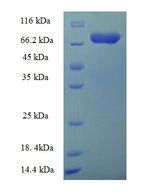
E. coli
His-SUMO
84.22 kD
1 mg/$1,355; 100 µg/$420; 20 µg/$323
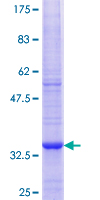
Wheat Germ Extract
GST, N-terminus
10 µg/$479; 25 µg/$670
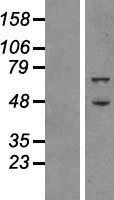
293T Cells
Myc-DDK (Flag)
68.1 kDa
20 µg/$215
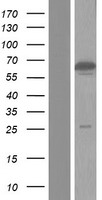
293T Cells
Myc-DDK (Flag)
58.7 kDa
20 µg/$150

E. coli
His-GST-S
62.8 kDa
10 µg/$281; 50 µg/$442; 100 µg/$705; 200 µg/$882; 1 mg/$1,989; 500 µg/$1,529; 5 mg/$3,081; 2 mg/$2,176

E. coli
His-T7
33.1 kDa
10 µg/$281; 50 µg/$442; 100 µg/$705; 200 µg/$882; 1 mg/$1,989; 500 µg/$1,529; 5 mg/$3,081; 2 mg/$2,176
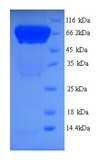
Yeast
His
70.27 kD
100 µg/$446; 20 µg/$336; 1 mg/$1,460
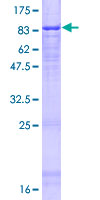
Wheat Germ Extract
GST
84.7 kDa
10 µg/$479; 25 µg/$670

HEK 293 Cells
Myc-DDK (Flag)
68.1 kDa
100 µg/$710

HEK 293 Cells
Myc-DDK (Flag)
58.7 kDa
100 µg/$494
Viewing 1-10
of 10
product results
If you do not find the reagent or information you require, please contact Customer.Support@LSBio.com to inquire about additional products in development.










